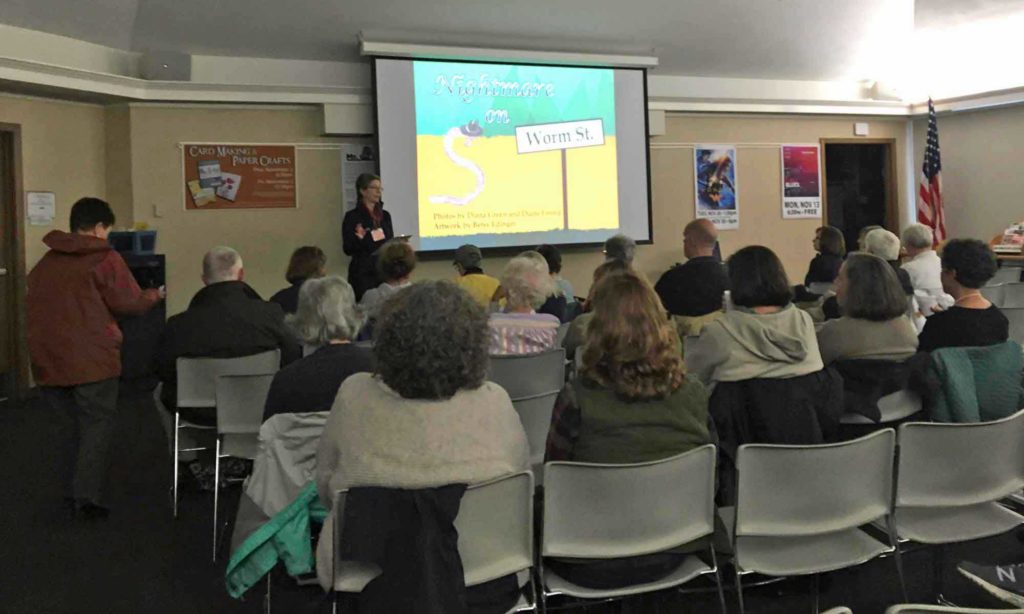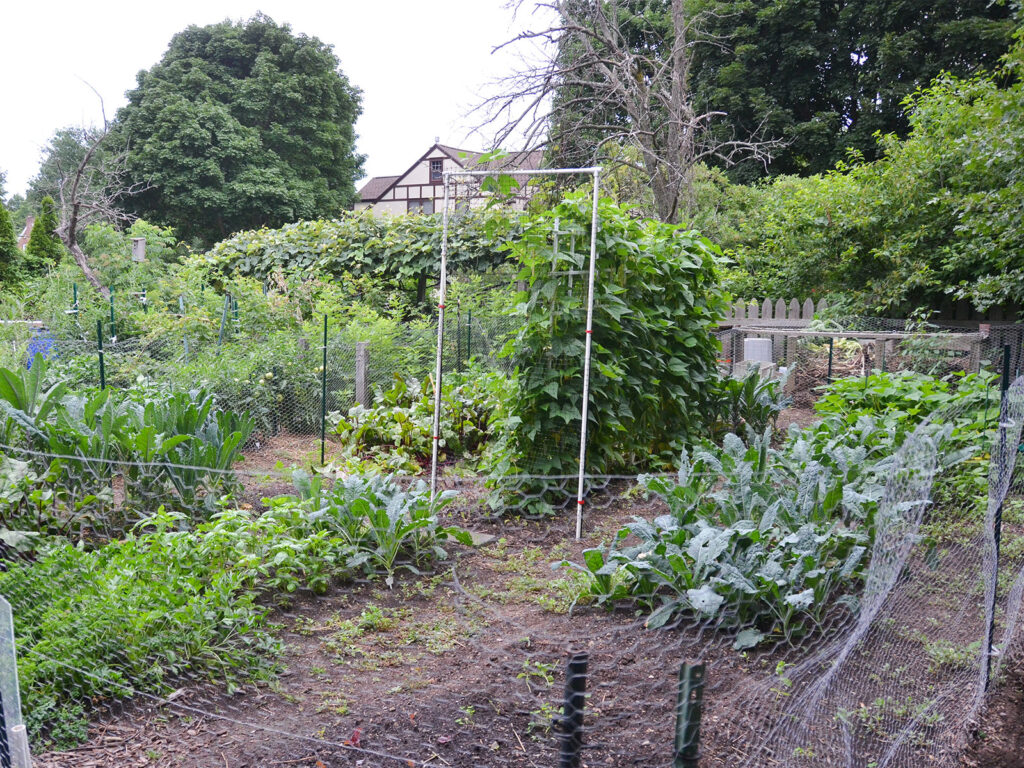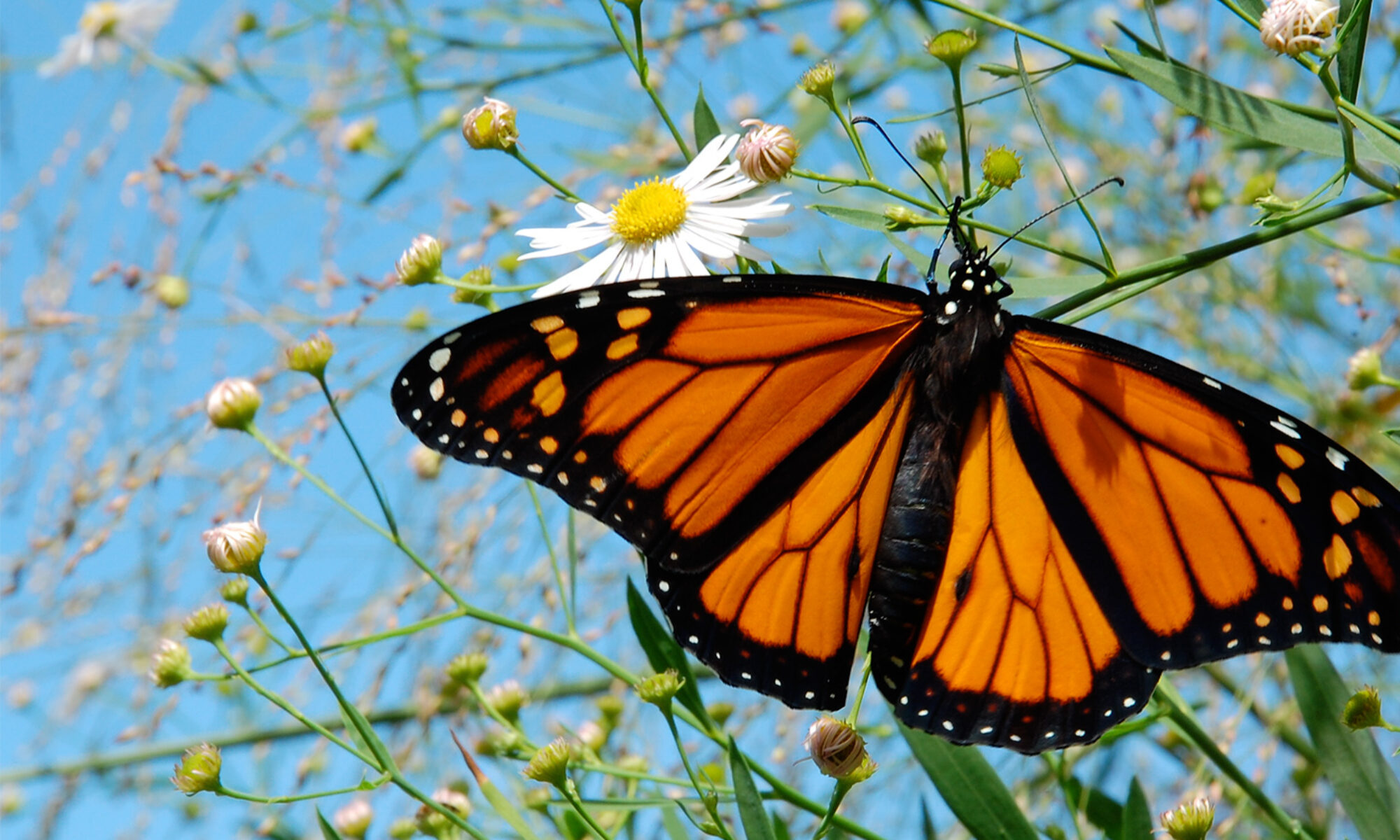Organizations
Our first venture into habitat gardening began with being certified as a National Wildlife Federation Backyard Wildlife Habitat.
Janet became very interested in the idea and became a NWF Habitat Steward. Although the information the National Wildlife Federation’s Certified Wildlife Habitat program provides is very useful, I needed more continuous, more detailed information, especially information tailored to our CNY area. I also was eager to meet other people who shared similar interests. I knew that if I was having difficulty knowing exactly what to do, other people probably were as well.
So I and two other like-minded people started what we described as “a garden club with a difference” — the “difference” being that we were more interested in good stewardship of our land than in just creating a pretty garden only for people.

We originally called our group the “Habitat Gardening Club” but later renamed it Habitat Gardening in Central New York (HGCNY) in 2002. (NOTE: We debated whether to use “in” or “of” but decided on “in” to emphasize the importance of location with respect to native plants.)
We met at a local nature center, and one of the co-founders, who happened to be a very knowledgeable professional natural landscaper, provided the bulk of our programs, although we occasionally asked other local experts (as we discovered them) to speak to our then-small group.
The next big change in how we thought about our land was when we discovered Wild Ones. Not only was their mission appealing, but it was exciting to discover a large group of people from around the country who were interested in the same thing we were interested in. After a while, HGCNY became an official chapter of Wild Ones: Native Plants, Natural Landscapes.
Edible gardening

Throughout our marriage, John has focused on growing our fruits and vegetables. Since he retired, he has grown even more produce and has learned even more. This knowledge was probably second nature to our grandparents (or, for the younger crowd, their great-grandparents), but these skills have largely been lost.
Initially, we were inspired by Jim Crockett of Crockett’s Victory Garden, especially by his emphasis on making compost. We’re now horrified by all the chemicals we used that he recommended, but we suspect that if he had lived longer, he would have changed this practice.
Here’s more on Our Edible Garden website.
Resources
No Wild Ones chapter in your area? Start your own!
Reflections
If the world were merely seductive, that would be easy. If it were merely challenging, that would be no problem. But I arise in the morning torn between a desire to save the world and a desire to savor it. This makes it hard to plan the day.
~ E. B. White
If there is to be an ecologically sound society, it will have to come from the grass roots up, not from the top down.
~ Paul Hawken, author of The Ecology of Commerce and co-author of Natural Capitalism
The plain fact is that the planet does not need more successful people. But it does desperately need more peacemakers, healers, restorers, storytellers, and lovers of every kind. It needs people who live well in their places. It needs people of moral courage willing to join the fight to make the world habitable and humane. And these qualities have little to do with success as we have defined it.
~ Dr. David Orr, “What is education for?”
If a man walks in the woods for love of them half of each day, he is in danger of being regarded as a loafer. But if he spends his days as a speculator, shearing off those woods and making the earth bald before her time, he is deemed an industrious and enterprising citizen.
~ Henry David Thoreau
Never doubt that a small group of thoughtful committed citizens can change the world; indeed, it is the only thing that ever has.
~ attributed to Margaret Mead, (1901-1978)
